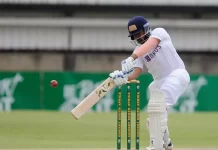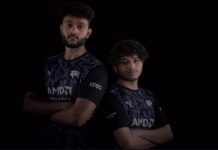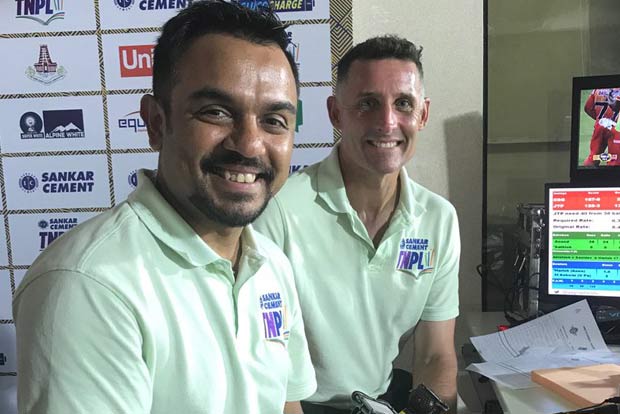Right from breaking the barriers of a typical Indian mindset to becoming the face of every sporting show, television presenter Radhakrishnan Sreenivasan opens up about his career journey so far in an exclusive chat to SportsIndiaShow.
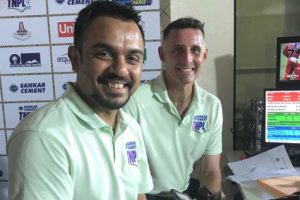
Born in what could be called a typical ‘Tam Brahm’ household in Chennai, Radhakrishnan, who is fondly referred to as RK to the sporting world, graduated with a degree in Physics before heading over to Mumbai to pursue his masters in MBA.
RK was vivid speaker, who had found interest for debates and elocutions since his school days. After working for about a year following his masters, he decided to take up his passion as his career path.
When asked on why he had decided to move to the field of sports after following a largely conventional educational curve, RK had this to say:
“Physics was a mainstream course for someone from India, especially Chennai. And I had to opt for an MBA as a second degree at that time was very critical.
“So I took up marketing since communication was my strength. Then later on after I realised that sports was my ultimate passion, I chose this field as it combined both my strength as well as my passion.
“Being the cultural secretary and debating secretary during my school and college days, I decided that I had to take this one risk in life as there was only one life and that’s how it panned out.”
But once again, what Radhakrishnan had decided to do was something completely unique and not a mainstream choice. When questioned on how supportive his parents were with the life choices he made, RK said that, “My parents were always open with what I intended to do but were always skeptical as an MBA job was a very high paying one and also that I had got placed through campus.
“But they knew that my interests always lay in the field of sports.
“Mainly I would like to thank my uncle who very supportive right from the very beginning. He urged me to follow my passion and also backed me during my early days in a completely new background.
“Also I had to take a huge pay cut as it was a new environment and so kept reminding my family who were back home regularly that I did not turn insane and knew what I was doing.”
Quitting his job from a high paying pharmaceutical company in Mumbai, Radhakrishnan set out approaching companies for his dream job with a CV. After working for about a month with CNBC, he joined hands with ESPNStar in 2002.
RK was immediately thrown into the limelight after being selected among the few that were sent to South Africa to cover the 2003 World Cup.
Sharing his experiences on the trip to South Africa, he said that it was a memorable one and more so because it was his first real expedition in the field that he loved working in.
It was an affirmation that his career choices were paying off.
“It was my first big tournament back in 2003 and it was filled with plenty of wonderful experiences. If I could pick up one moment from that world cup where I could say that I went “wow” was when Shaun Pollock himself made it to the hotel where I was staying so that our team could interview him on his axe from captaincy.
“I felt that it was one of the great moments where the South African captain himself drove by to give an interview. Also, watching India reach the finals coupled with the previous incident was why it such a memorable world cup for me.”
Post the 2003 world cup, RK kept working with ESPNStar but was moved to the production department in Singapore.
He then finally got his break after being made the face of NEO Sports in 2006.
When asked on how he felt in becoming a famous figure in every Indian household during that period, RK again and again thanked both Harish Thawani and James Rego for supporting him constantly and making this phase happen.
“I would like to thank Harish Thawani who made this happen and someone who constantly trusted in my abilities. Also I would like to thank another special person named James Rego. Back when I was searching for a job while working in the pharmaceutical company, it was James Rego who I first met.
“He was working with Nimbus productions, who were back then involved in the backend shows. While he couldn’t offer me a job back then, I once again contacted him when I found out that they were about to launch the channel.
“He was the one who said ‘why not’ and linked my name to the right set of people to make me who I am today.”
Since then RK has never looked back, hosting a variety of sporting shows on television across various channels. Once he had finished sharing the conversations that covered his initial days, the chat extended itself into the insights of a studio room.
One obvious question I had to ask was on how he gains his knowledge on a topic and how much homework goes into it before presentation.
“Homework is something which is a regular process. I love and follow both cricket and football extensively.
“So I tend to read a lot of news in those topics on a daily basis. More then that I also like to dive into the history of any sport.
“This is pretty much the amount of work I put into each sport and if you would like to call this a homework and this is it.”
Also when asked on how one maintains neutrality while being on air, Radhakrishnan had a simple answer for it. He said that analysing one’s strengths and weaknesses alone would ensure that you speak only the valid points and not remain biased.
“You kind off learn over a period of time. Finally at the end of the day, you are a professional who is required to do the job. You might be a fan of a particular team but it isn’t necessary that the audience who is watching it might be.
“So as a broadcaster it is important that you give them a fair picture of what it is all about. In fact if you go in with a clean slate of mind and not by judging an issue, then it pretty much helps to address the game from a neutral’s point of view.”
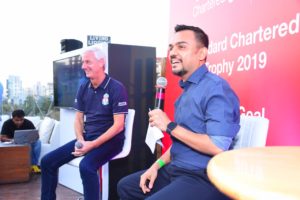
When speaking about how the current generation can break the mainstream mindset in India to take up a career in sports, RK highlighted that it was important for someone to pursue a career in what they love and not live their life for someone else.
“In 1998 when I did my degree, which is easily about 20-21 years before, medical was the mainstream course. Probably even now it is.
“But I think at some level everyone needs to look at themselves very carefully on what they like. How I look at what one’s career is pretty simple. Assume you wake up knowing that you will not be paid for whatever you do from now. What will be the first job you do?
“It’s something you are passionate about. So I guess one who is about 22-23 years old should pursue what he desires, keeping the money part of it as secondary.”
But in reality when the numbers are taken into consideration, only a handful of people who have not played cricket have made it as a commentator or a presenter.
Nowadays the chances of someone from some other fields becoming a commentator is decreasing.
But RK has a curious take on the matter.
“Increasingly with more cricketers retiring that is how the ecosystem is evolving (cricketers turning into commentators).
“It has now become increasingly difficult for non cricketers to become commentators. I still believe that there is still scope for non cricketers but not sure whether the system still believes that.
“According to me commentary is not only about giving out one’s experience but also about the way they narrate the story.
“While I agree that the numbers have come down, I still hope that there is scope for them to turn into one.”
After stints with NEO Sports and Ten Network, he decided to return to where his journey all began and is currently part of the Star Sports Tamil commentary team.
After spending over 10 years presenting in English, changing to Tamil was a pretty challenging task for Radhakrishnan. Even while he knew his mother tongue in and out, he hadn’t had enough exposure using it professionally.
But according to him, the experience in the panel along with the likes of Srikkanth and RJ Balaji has been amazing so far, and he currently finds it easier to speak in Tamil than when he began.
“About 2-3 years before, during the start of the channel, I doubted my abilities to talk in Tamil. Though I had the knowledge of speaking it in a local way, coming on air and presenting it was totally a different ball game.
“But over a period of time I would like to believe that I have become better and also, it has been an amazing experience so far.”
RK then concluded his interview by saying that there is more freedom while speaking in a regional language as it is a lot easier to connect with a section of people by citing some cinematic references.
“When the numbers are taken into consideration, the regional channels have done considerably well in the previous year.
“The advantage of doing commentary in Tamil is that one can use a reference of say, comedian Vadivelu to portray whatever they want to convey.
“It makes the job a lot more fun and interesting while at the same time making everyone watching clearly understand the situation going on in the game.
“Also it is really important to bring the audience back into the match and not divert them too much.”
